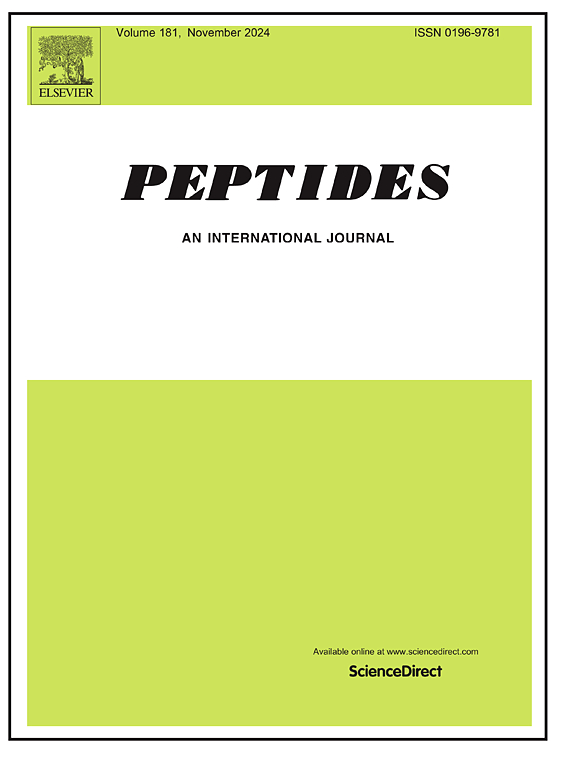鳄鱼的宿主防御肽--全面综述。
IF 2.9
4区 医学
Q3 BIOCHEMISTRY & MOLECULAR BIOLOGY
引用次数: 0
摘要
两栖动物和爬行动物与所有动物一样,容易受到周期性感染。然而,鳄鱼的与众不同之处在于,尽管它们经常接触栖息地中的各种微生物,而且经常受到严重伤害,但它们仍能保持总体健康和不受感染。这些动物进化出了高度活跃的免疫机制,能够提供快速有效的防御。与其他生物相比,它们的血浆具有更强的溶血能力,这就证明了这一点。迄今为止,已在鳄鱼体内发现了几种宿主防御肽(HDPs),包括cathelicidins、beta-defensins、hepcidins、leucrocins、hemocidins和omwaprins。这些肽具有强效、广谱的抗菌、抗生物膜、抗真菌和抗癌活性。由于鳄鱼的进化速度相对较低,但进化方式多种多样,因此在该物种中发现的 HDPs 为了解与免疫防御有关的许多动物高度保守的蛋白质和作用机制提供了宝贵的信息。HDPs 在现代医学中的潜在应用为开发新的治疗药物提供了一种前景广阔的策略。它们的新颖性以及肽序列设计和修饰的巨大可变性几乎无限地扩展了 HDPs 的应用领域。本综述探讨了对创新和更有效药物的迫切需求,以应对抗生素耐药性感染的增加,并评估了鳄鱼 HDPs 的潜力。它介绍了鳄鱼 HDPs,特别是抗菌肽(AMPs)鉴定的最新进展,包括以前未充分探索的主题,如鳄鱼中不同类型肽的序列和结构构象,以及使用生物信息学工具来增强本地肽。本文章由计算机程序翻译,如有差异,请以英文原文为准。
Host defense peptides in crocodilians – A comprehensive review
Amphibians and reptiles, like all animals, are prone to periodic infections. However, crocodilians stand out for their remarkable ability to remain generally healthy and infection-free despite frequent exposure to a wide variety of microorganisms in their habitats and often sustaining significant injuries. These animals have evolved highly active immune mechanisms that provide rapid and effective defense. This is evidenced by the superior hemolytic capacity of their plasma compared to that of other organisms. To date, several host defense peptides (HDPs) have been identified in crocodilians, including cathelicidins, beta-defensins, hepcidins, leucrocins, hemocidins, and omwaprins. These peptides exhibit potent and broad-spectrum antimicrobial, antibiofilm, antifungal, and anticancer activities. Due to the relatively low but diverse evolutionary rate of crocodilians, the HDPs found in this species offer valuable insights into proteins and mechanisms of action that are highly conserved across many animals related to immune defense. The potential applications of HDPs in modern medicine represent a promising strategy for developing new therapeutic agents. Their novelty and the vast variability with which peptide sequences can be designed and modified expand the field of application for HDPs almost infinitely. This review addresses the urgent need for innovative and more effective drugs to combat the rise of antimicrobialresistant infections and evaluates the potential of crocodilian HDPs. It presents recent advances in the identification of crocodilian HDPs, particularly antimicrobial peptides (AMPs), including previously underexplored topics such as the sequential and structural conformation of different peptide types in crocodilians and the use of bioinformatics tools to enhance native peptides
求助全文
通过发布文献求助,成功后即可免费获取论文全文。
去求助
来源期刊

Peptides
医学-生化与分子生物学
CiteScore
6.40
自引率
6.70%
发文量
130
审稿时长
28 days
期刊介绍:
Peptides is an international journal presenting original contributions on the biochemistry, physiology and pharmacology of biological active peptides, as well as their functions that relate to gastroenterology, endocrinology, and behavioral effects.
Peptides emphasizes all aspects of high profile peptide research in mammals and non-mammalian vertebrates. Special consideration can be given to plants and invertebrates. Submission of articles with clinical relevance is particularly encouraged.
 求助内容:
求助内容: 应助结果提醒方式:
应助结果提醒方式:


